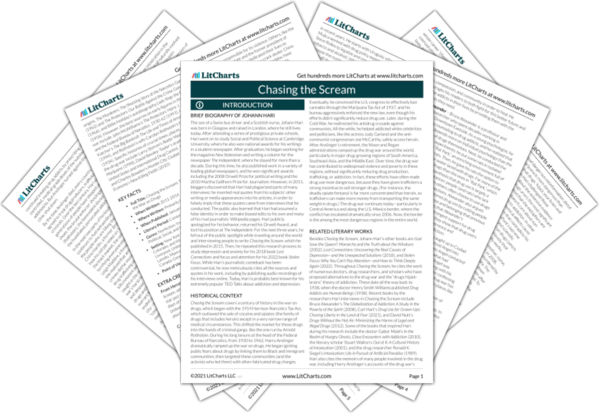Hari ends with a final image of Anslinger’s hypocrisy, but his goal isn’t merely to condemn Anslinger as evil. Instead, Hari is actually trying to empathize with Anslinger, who dedicated his whole life to an obsessive crusade against something he was too afraid to understand. The more he punished addicts, the more they yearned for drugs, and the more he fought the drug trade, the further it slipped into the black market. Thus, Anslinger’s drug war wasn’t just a devastating failure for the societies that fought it: it was also a personal failure for Anslinger himself, because the more he chased the scream to try and silence it, the more screams he created. And his final days on morphine represent how he inevitably lost his war on drugs. When Hari asks if Anslinger remembered the screams or let them fade away, this isn’t just a metaphor for heroin’s effects: it’s also a way of asking whether Anslinger finally accepted the truth that the drug war was futile and that drugs aren’t nearly as dangerous as Anslinger thought. Of course, Hari is also asking whether global society will finally learn the same lesson, accept the scientific evidence about drugs, and overcome its addiction to the drug war once and for all.
